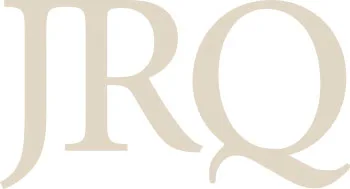quinn lawyers
Family tax rates need an overhaul
In the lead-up to this year’s budget, one of the main things I would like to see addressed is the disparity amongst families when it comes to our current tax rating system.
Analysis conducted overseas shows that Australia has one of the most aggressive tax systems in the world for single income families.
I have long been an advocate for income splitting to help dissipate the obvious discrepancy in this area of our tax system.
Income splitting is a tax structure of allotting a part of the earned income of one partner to the other partner for the purposes of assessing personal income tax, thereby reducing tax rates paid by the partner who earns more and increasing rates paid by the partner who earns either less or nothing. In some cases, the number of children or dependants is also considered in these calculations to determine different tax brackets.
There is a slight glimmer of hope that this unfair system may be rectified soon.
Senator Matt Canavan, now Resources Minister, in his maiden speech to the Australian Senate in 2014, raised the issue of income splitting pointing out that one of the clear key factors for Australia’s aggressive family tax system is that fact that double income families have access to two tax-free thresholds, whereas single income households only have access to one.
This means that two families, earning the same income and making the same contribution to the economy, are treated markedly differently under Australia’s taxation rules.
This is a situation made worse when the former ALP government introduced an increase to the tax-free threshold from $6000 to $18,200 in 2012, as part of that government’s carbon tax changes.
As there are around one million Australian families that rely on one parent for most of their income, these increases hurt regional families most, with a single income family more likely in regions such as ours on the Border and the North East than in the larger urban areas.
In his first speech, Minister Canavan gave the example of a household of two children where both parents work full-time and earned $60,000 per year each, for a total household income of $120,000. That family pay close to $24,000 a year in tax. Compare that to a household, also with two children, where only one parent works and earns $120,000 per year and pays about $34,000 per year in tax—$10,000 per year more than the double-income household.
No doubt all working families in this region agree that this is not a fair tax system and this is where income splitting could come into play.
In 2015 the Canadian government introduced a capped form of income splitting, allowing couples with dependent children to transfer an amount of income equivalent to the tax-free threshold from the higher income earner to the lower income earner for tax purposes and would allow single income couples access to the same tax-free thresholds as dual income couples.
With around half of all OECD countries having some form of shared tax arrangements, such a tax system is not uncommon.
Currently under Australia’s social security system child support and family law arrangements conclude that the family income and its assets are shared between family members. Still, as it is currently structured, Australia’s tax system does not acknowledge the economic reality of today’s working families.
Marty Corboy ran as the National Party candidate for Indi in last year’s federal election.
Read More: Border Mail
Back to News


